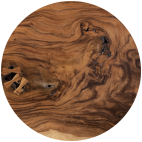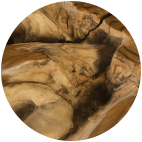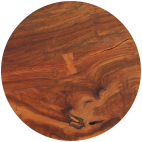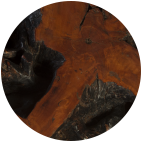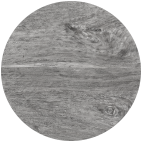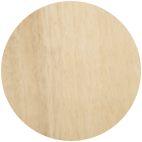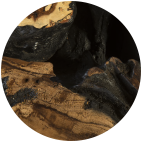A plethora of wood species and cuts encompass our offering of Origins Coffee Tables. Tree trunks, roots, slabs, and off-cuts are re-imagined as functional surfaces. Our coffee tables are lovingly crafted using wood such as chamcha, teak, lychee, variants of burl, and more. The Origins Collection signifies a love and reverence for the natural resources of our planet. Each piece is sustainably sourced in alignment with Phillips Collection’s green mission, meaning not one tree has been felled in the creation of any Origins furnishings.
Available Wood Species
& Finishes
We offer a variety of wood species and finishes for our furnishings. Please take a look at the available options below.
Available Styles
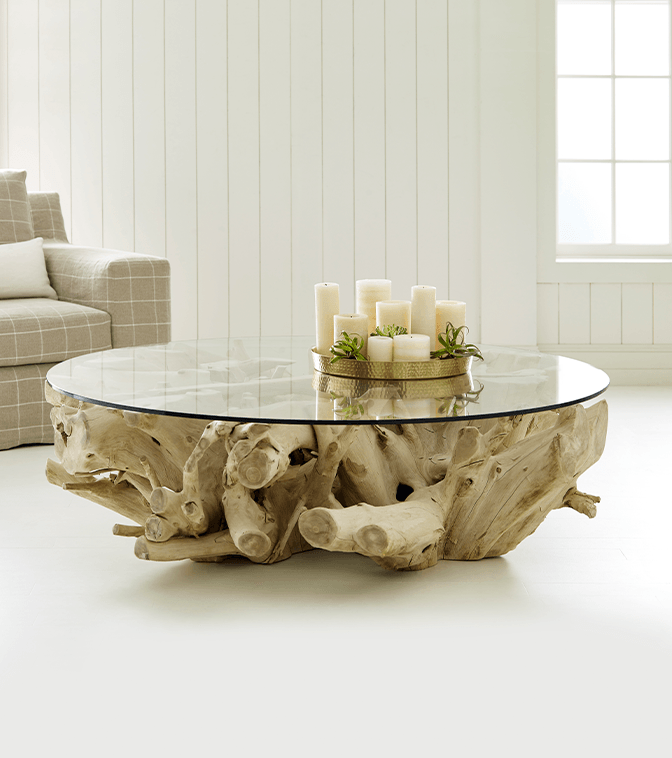
Teak Root
Teak Root tables possess an exceptionally pronounced grain that is best accented by a simple clear coat finish. These tables have erratic root formations similar to Lychee, however, Teak Roots are not as densely packed as Lychee. This produces visible gaps within the woodwork and makes every piece look truly unique. The wood produces natural oils that allow it to be used outdoors year-round, where it develops a beautiful silver-grey patina. We offer Teak Root tables in natural, bleached, and other kinds of finishes.
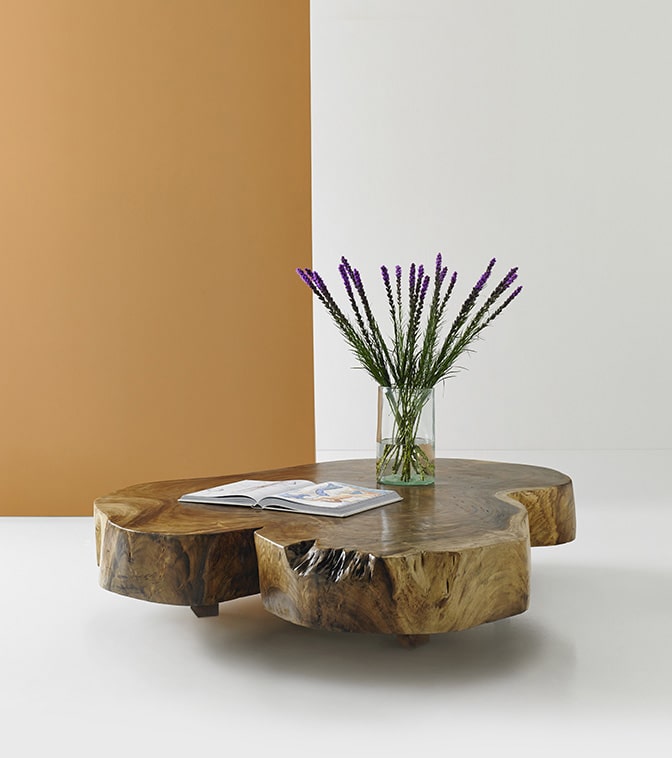
Core
The Core category is created by using wood from the heart of a tree. A cross section of a solid trunk, the most notable feature of Core tables is the solid uninterrupted shape and lack of organic gaps in the woodwork. With a more solid top surface, this category is the polar opposite of Chasm. Some crevices and gaps may appear in small quantities, but the overall shape of these tables are completely solid with minimal organic growth.
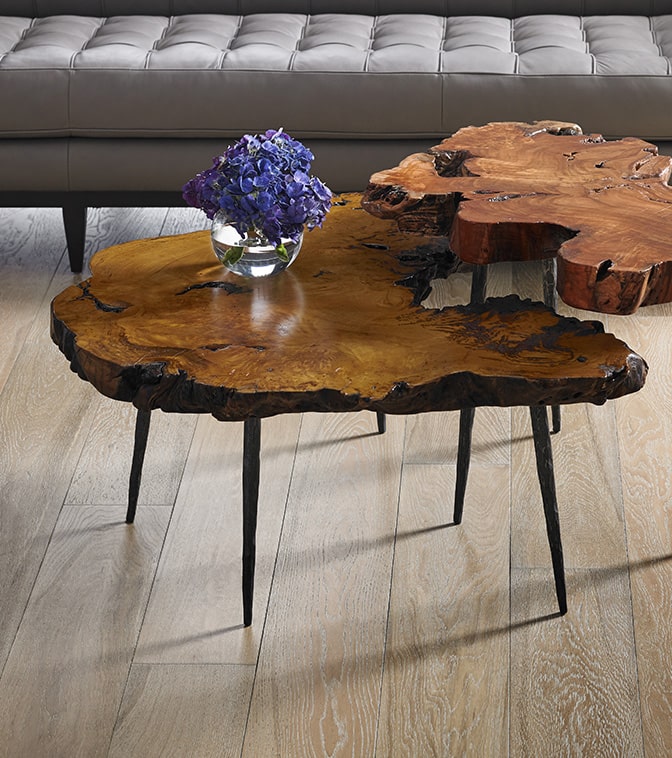
Burled Forged
The most beautiful aspect of burled wood is that it is the hardest and most rare part of a tree. Often used in veneers for fine furniture, interiors of luxury cars, or high-end instruments. Burled wood is organically shaped, and we take the most unusual forms we can find and slice them into solid, generously sized slabs. These slabs are then affixed to our forged legs in order to create the Burled Forged tables.
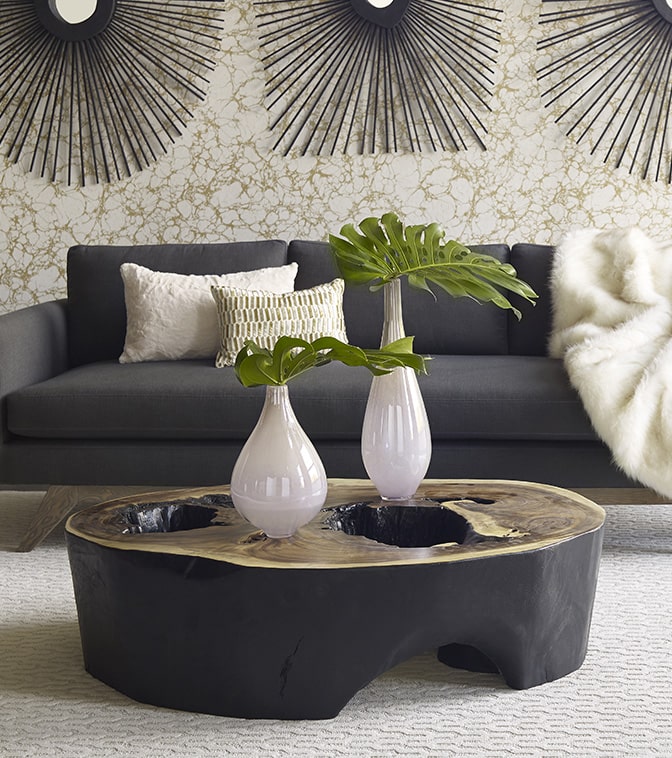
Chasm
While it can be formed from any type of wood, the key identifier for our Chasm tables are the large holes present in the middle portion. These organically shaped holes are the namesake and focal point of this category, due to the way it emulates staring into a large chasm while looking down at the table. Typically comes from a cross section of hollowed out trunk; these tables can differ in shape and size. Chasm tables most commonly have one hole, but some may have two or more.
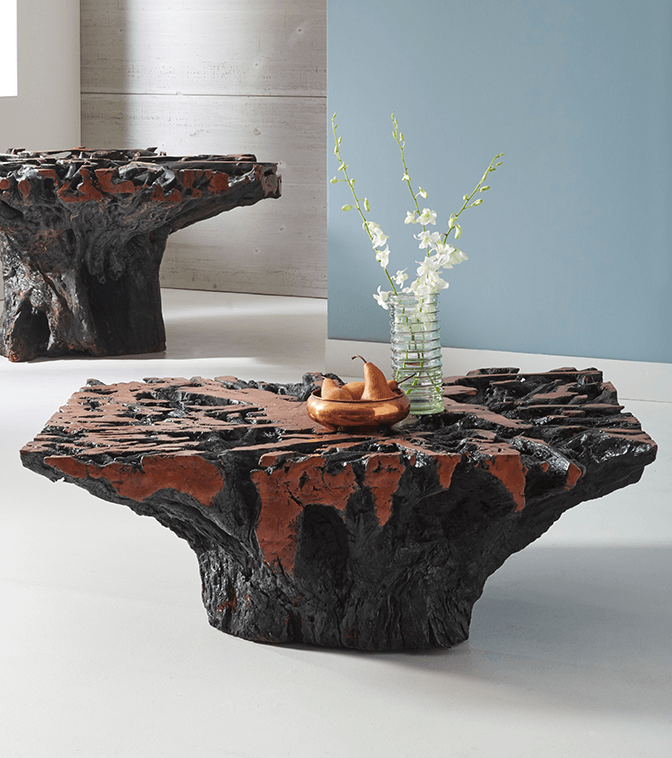
Lychee Root
The Lychee Root tables come from Lychee Wood; which is a hardy, heavy wood that originated from China. The fruit these trees bear has resulted in it becoming more prevalent across Southeast Asia and beyond. These tables always come in their natural finish in order to showcase the unique reddish hue that Lychee wood is known for. The top surface of these tables are very organically shaped, fully showcasing the root formation of the trees they were taken from.
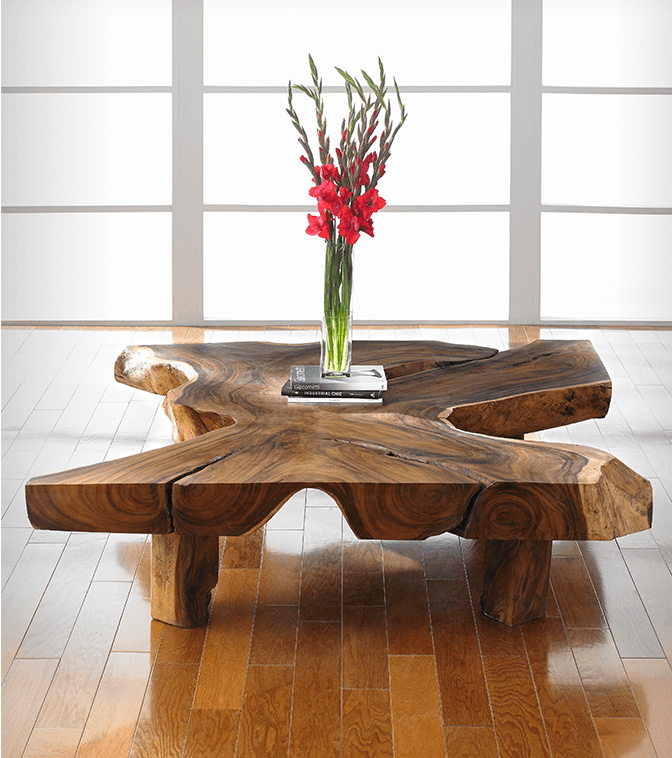
Pangea
Pangea Coffee Tables are very distinctive in their appearance. We take a cross section of a large freeform shaped trunk and slice them into cuts. The result is a huge table that also possesses a beautiful and unique scalloped shape along the edges of the tabletop. These tables are one solid piece of wood with minimal natural holes. They are also not rooty or branchy, like the Freeform category.
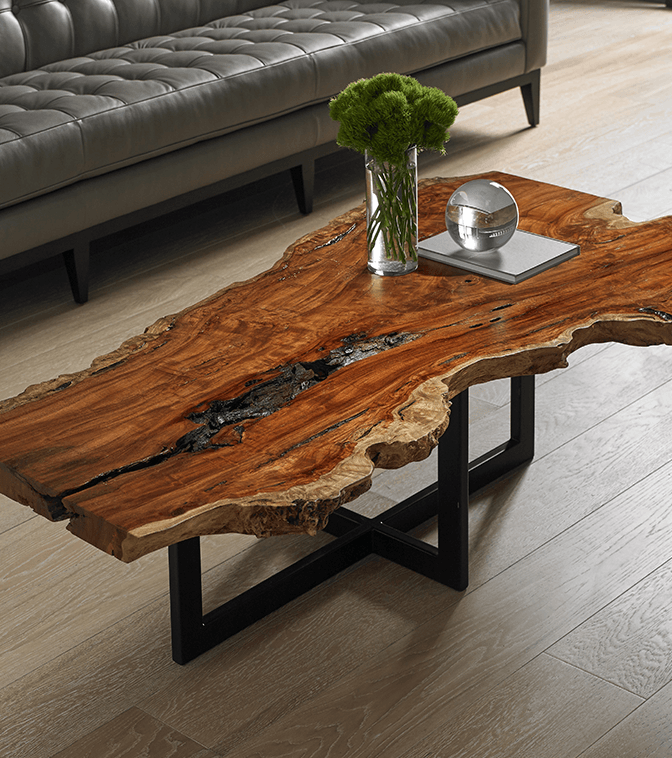
Burled Cross
The most beautiful aspect of burled wood is that it is the hardest and most rare part of a tree. Often used in veneers for fine furniture, interiors of luxury cars, or high-end instruments. Burled wood is organically shaped, and we take the most unusual forms we can find and slice them into solid, generously sized slabs. These slabs are then affixed to our cross base legs in order to create the Burled Cross tables.
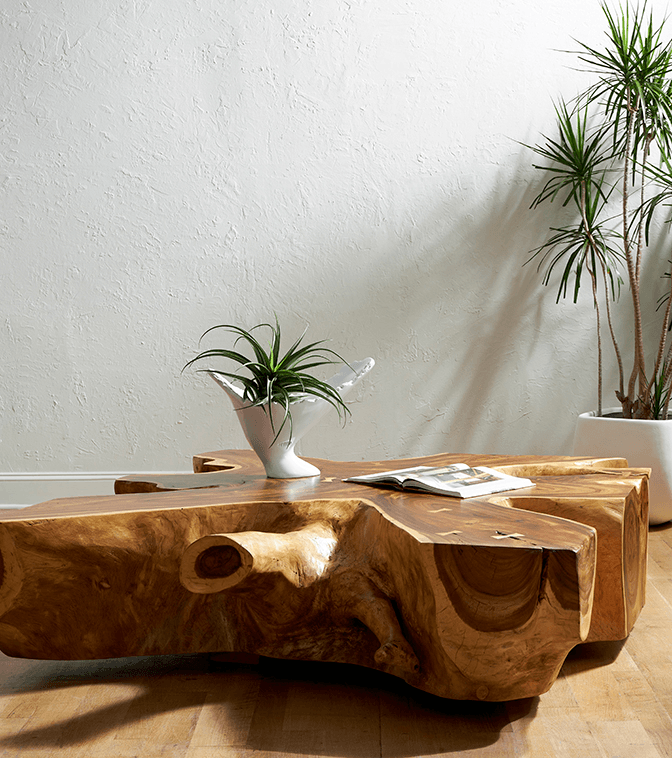
Freeform
The Freeform category comes into existence when Mother Nature decides to let down her hair and go crazy. Featuring a wide array of unpredictable and random shapes, Freeform can be used to describe pieces that don’t really fit in with the more defined categories. Typically cut from the root or branch sections of a tree, the true defining feature of Freeform is the extra character within the grain and the unorthodox shape of the wood itself.
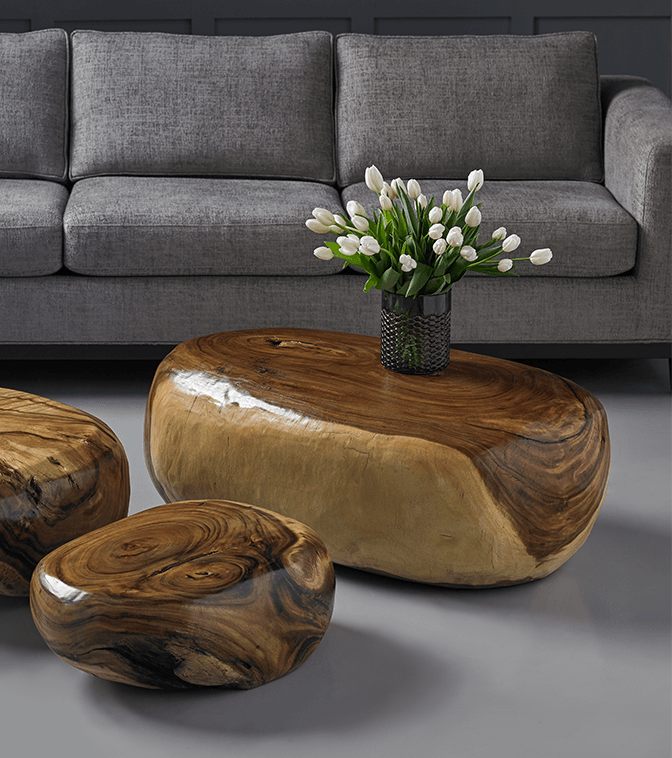
River Stone
River Stone tables are organically shaped and can be made from any kind of wood. Like Core tables, River Stone tables come from the heart of the tree. The true distinguishing characteristic of these tables lie in the rounded edges and overall smooth form factor: similar to a stone that has been exposed to years of erosion. These tables can come in both Natural and Gray Stone finishes.
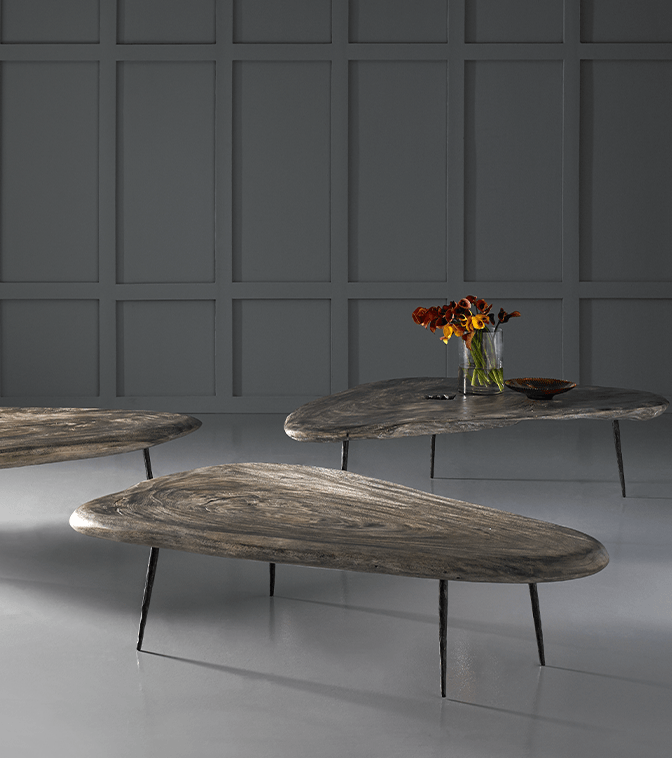
Skipping Stone
Think River Stone, but flatter, thinner, and placed atop our forged legs. That is the Skipping Stone category in essence. Made out of chamcha wood, these tables are constructed to resemble a flat, round stone that you would use to skip across a lake or creek. Unlike the River Stone tables, the Skipping Stone category only comes in a Gray Stone finish.
